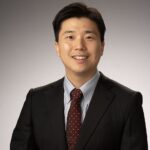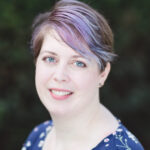Religion and Politics
Syllabi - Topic: Religion and Politics - 22 results
Select an item by clicking its checkboxA course by Alex Neff at Acces-France Study Abroad focused on "how the history of religion in France particularly the relationship between the Church and the State, continues to shape the religious landscape of the country today."
A course by Chad Bauman at Butler University on the "relationship of religion, politics, and conflict in modern South Asia."
A 2014 course by Mehmet Karabela at Queen's University "explores the role of religion in the politics of Muslim societies with particular attention to the modern period."
A 2014 course by Stratos Patrikios at the University of Strathclyde looks at "the impact of faith upon politics" in the modern era. Quantitative and qualitative approaches are employed and "the empirical application of relevant theoretical frameworks" is paramount.
A 2009 course by Mika LaVaque-Manty at the University of Michigan "explores the relationship between religion and secularism, focusing on the political significance of the relationship."
A 2013 course by Mark Lewis Taylor at Princeton Theological Seminary examines globalization, "coloniality of power, class and empire, as challenges to critical reflection in theology and ethics."
A 2013 course by Judge James Menno at Boston College explores the "relationship between man-made law created by the courts and the legislature and moral and religious value."
A 2013 course by Melissa Harris-Perry at Wake Forest University on the "connections between black religious ideas and political activism."
A 2003 course by Michael Clark at Warren Wilson College surveys "literary/cultural features and motifs of biblical apocalypse texts . . . Various postbiblical apocalyptic communities and /or events over history . . . [and] how apocalyptic thinking continues to shape 20th and 21st century ways of being in the world."
A 2008 course by Mehrzad Boroujerdi and Gustav Niebuhr at Syracuse University explores the intersections of religion, media, and international relations.
A 2014 course by Madeleine Miller, OSB at Wayne State College investigates "how religion and politics intersect in American society."
A 2011 course by Ruben Garrote at Florida International University offers an introduction "to the key issues surrounding the interpretation and implementation of the First Amendment protection of freedom of religion . . . from the time before the American Revolution to the present."
A 2003 course by Chris Hamilton at Washburn University "describes the major world religions in America, and their political/social teachings and practices that affect American life and the world."
A 2014 course by Laura Olson at Clemson University "designed to examine and critically analyze the nature of the relationship between religion and various aspects of politics in the United States."
A 2013 course by Chris Gilbert at Gustavus Adolphus College "examines the political impact of religion in the United States, both historically and today."
A 2013 course by Kenneth Wald at the University of Florida concerns "the impact of religion on the major dimensions of politics in the United States. 'Religion,' as defined in the course, refers not only to formal theological creeds but also to the social beliefs, organizations and subcultures associated with various religious communities. The principal aim of the course is to understand how religion affects politics (and vice versa)."
A 2012 course by Mark Brewer at the University of Maine examines the "thoughtful and critical examination of the many different ways that religion affects American politics, and also ways in which politics affects matters of religion."
A 2009 course by Ira Chernus at the University of Colorado-Boulder focuses "principally on the relation between religion and nationalism in the history of the United States. We will look particularly at the the question of how a self-styled âchosen peopleâ understands itself and its mission and deals with other peoples."
A 2011 course by David Campbell at the University of Notre Dame analyzes "the ways in which religion is interwoven into American politics . . . (and) America's religious pluralism."
A course by Joseph Kosek at George Washington University "considers how religion and politics have influenced each other in the United States as well as the ways that Americans have understood those influences."
A 2013 course by Mehmet Karabela at Queen's University on" the role of religion in the public sphere and its relation to liberal democracy" with a focus on secularism, globalization, and multiculturalism.
A course by Laurie Bagby at Kansas State University.

